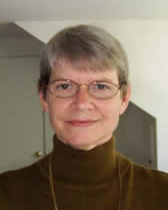Caroline Bledsoe
Emerita | Melville J. Herskovits Professor of African Studies

- cbledsoe@northwestern.edu
- 847-491-4825
- 1810 Hinman Avenue, #201
Bledsoe’s projects in West Africa have centered on cultural visions of marriage, fertility and contraception, and child fosterage, several of which have been followed by U.S. and European counterpart studies.
Her most formative project, in The Gambia (Contingent Lives: Fertility, Time, and Aging in West Africa, 2002, University of Chicago Press; contributions by Fatoumatta Banja), confronted Western views of the life course, which equate aging with the passage of linear time, with a West African model, which views aging as contingent on the cumulative effects of “wear,” especially, for women, that encountered in obstetric trauma. A subsequent study of technical writings in Western obstetrics, most notably by Chicago obstetrics pioneer Joseph B. De Lee, both revealed unmistakable support for the African view and deepened ideas of how “nature” comes to be. A book is in preparation (Selecting Populations, Selecting Memories: The Evolution of Visions of Childbearing in Twentieth Century America.)
Her current project is “Transnational vital events: birth, law, and migration between Africa and Europe,” based at the Max Planck Institute for Demographic Research in Rostock, Germany. It asks how people distribute their key life moments – especially birth and marriage – across international boundaries as rights to work and live in Europe shift so dramatically. A book, The Demography of Family Reunification in Afro-Iberia, is planned, and in 2007, she will co-chair The Berlin Roundtables on Transnationality, Irmgard Coninx Foundation. Theme: “Population Politics and Human Rights.”
She has been supported by the Ford, Rockefeller, and Mellon foundations, the National Science Foundation, the John Simon Guggenheim Foundation, and the Max Planck Institute for Demographic Research.
Courses Taught
- "Reproduction & It's Regulation Over Time"
- "Anthropology of Reproduction"
